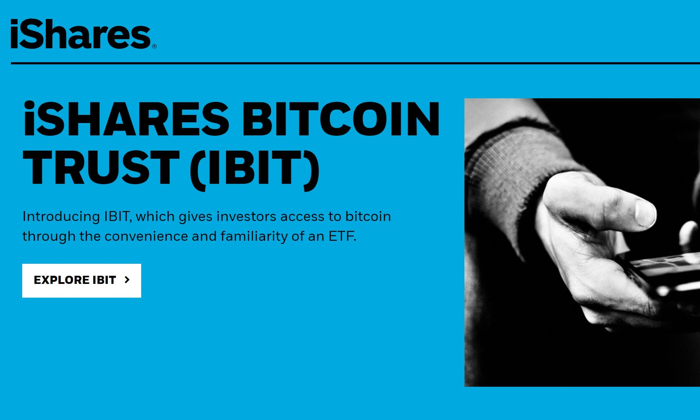In the current climate of heightened global trade tensions, Bitcoin and global trade tensions have become intrinsically linked, shaping a new narrative for financial assets. As countries grapple with the repercussions of new tariffs imposed by the US, Bitcoin’s resilience as a neutral asset has garnered significant attention. Analysts highlight the potential for Bitcoin to serve as a safeguard against the uncertainty of global trade conflicts, particularly given the fluctuating dynamics of international economics. This narrative has spurred increased institutional interest in Bitcoin, encouraging many to view the leading cryptocurrency as a viable alternative amidst turbulent times. Ultimately, these factors could fuel Bitcoin’s position as a key player in the evolving landscape of global finance, especially as its market demonstrates an impressive adaptability amid operational challenges.
With the rise of geopolitical strains affecting traditional markets, the discussion around digital currencies like Bitcoin has garnered significant traction. Increasingly, Bitcoin’s function as a universal asset is proving to be crucial in the face of global economic adversities marked by trade disputes and financial uncertainties. As tariffs escalate and trade relationships become strained, Bitcoin emerges as a hedge against inflation and economic instability, drawing attention from institutional investors. This shift indicates a broader acceptance of cryptocurrency in international transactions, evidencing a potential pivot in financial paradigms influenced by the competing interests of nations. Such developments underline the importance of monitoring Bitcoin’s evolution in light of ongoing monetary shifts and its relationship with global commerce.
The Strategic Appeal of Bitcoin Amid Global Trade Tensions
In recent years, Bitcoin has emerged as a beacon of financial stability amid escalating global trade tensions, particularly with the implementation of new tariffs by the US government. Analysts, including Matthew Sigel of VanEck, argue that Bitcoin’s unique properties as a decentralized and neutral asset make it increasingly appealing during times of geopolitical uncertainty. The imposition of tariffs on various commodities not only impacts traditional markets but also heightens investor interest in alternative assets like Bitcoin. As nations engage in protective measures, the resilience of Bitcoin as a leading cryptocurrency positions it favorably as a hedge against localized economic turmoil.
The ongoing trade conflicts challenge established economic frameworks, pushing investors to seek safe havens. Bitcoin’s performance during these tense times reveals its market resilience; while it experienced a fluctuation—dropping to the $81,000 range—its subsequent recovery highlights a growing confidence in its role as a financial asset. This phenomenon underscores the increasing recognition of Bitcoin as a strategic response to volatile global trade dynamics, changing the way we perceive value in the context of international relations.
Bitcoin’s Role as a Neutral Asset in Economic Conflicts
As global trade conflicts intensify, Bitcoin’s reputation as a neutral asset is gaining traction. Traditionally reliant on the US dollar for international transactions, many countries are now exploring digital currencies to mitigate risks associated with trade tariffs and economic sanctions. Reports indicate that nations like China and Russia have started using Bitcoin for energy transactions, emphasizing a shift towards alternative financial systems that do not rely solely on the dollar. This development enhances Bitcoin’s status as a potential standard for cross-border trade, showcasing its ability to transcend national economic conflicts.
Moreover, Bitcoin’s institutional adoption reinforces its emerging role as a preferred asset for international settlements. Financial entities and governments are increasingly experimenting with Bitcoin to facilitate transactions and reduce reliance on conventional banking institutions burdened by geopolitical factors. As Sigel points out, this movement towards a monetary realignment is not merely speculative; it is a crucial shift towards a multipolar economic landscape where Bitcoin may serve as a central player.
The Impact of US Tariffs on Bitcoin Demand
The recent imposition of tariffs by the US has raised significant concerns in global markets, leading to shifts in investor behavior and asset allocation. As economic growth forecasts dim due to trade conflicts, analysts suggest that Bitcoin may benefit from these conditions. For instance, Sigel posits that if tariffs constrain GDP growth without escalating inflation, the Federal Reserve might be prompted to lower interest rates. This potential easing of monetary policy could create a favorable environment for Bitcoin, as lower interest rates typically enhance its attractiveness compared to fiat currencies.
Additionally, the burgeoning demand for Bitcoin ETFs offers a glimpse into its strengthening market position. Even amidst volatility, net inflows into US-listed Bitcoin spot ETFs have surged, signaling growing institutional interest despite trade-related uncertainties. This demand is likely fueled by the perception of Bitcoin as an inflation hedge and a way to diversify portfolios amidst global economic turbulence. As traditional investment vehicles face the repercussions of protectionist policies, Bitcoin emerges as an adaptive asset that caters to evolving investor needs.
Institutional Interest in Bitcoin: A Growing Trend
The increasing institutional interest in Bitcoin is evident as financial firms recognize its potential for creating value in portfolios facing global uncertainties. The drastic shifts in trade policies and market dynamics have prompted asset managers and institutional investors to incorporate Bitcoin as a key component of their strategies. According to Sigel, the influx of approximately $600 million into Bitcoin ETFs this year reflects a substantial commitment to digital assets by institutional players, reinforcing confidence in Bitcoin’s long-term viability.
This trend signifies a growing acknowledgment of Bitcoin not just as a speculative asset but as a legitimate resource for diversification and risk management. With institutions actively participating in the Bitcoin market, the narrative is shifting towards viewing cryptocurrency as a critical part of modern finance. As more entities adopt Bitcoin and related products, its stature continues to grow, reinforcing its role in the evolving landscape of global trade and investment.
The Future of Bitcoin in a Multipolar Economic Order
As global trade relations evolve, the future of Bitcoin is closely tied to its role in a multipolar economic order. Sigel emphasizes that the recent tariffs may not only disrupt current trading practices but could also catalyze countries to reconsider their financial alliances and develop alternative systems integrating digital assets. This transition towards a multipolar framework signals a growing acceptance of Bitcoin as a legitimate medium for trade, potentially transforming how countries engage with each other economically.
In this context, Bitcoin’s integration into the fabric of international finance could redefine power dynamics. The shift may allow countries to act independently of US economic pressures, paving the way for a more decentralized financial ecosystem. Furthermore, as more nations adopt Bitcoin for transactions, its utilization will likely expand beyond mere speculation, making it a foundational asset in shaping the future of global commerce.
Evaluating Bitcoin’s Market Resilience in Current Economies
Evaluating Bitcoin’s market resilience amid ongoing global trade tensions reveals critical insights into its performance dynamics. Despite initial volatility when US tariffs were introduced, Bitcoin has demonstrated a remarkable ability to recover and stabilize, outperforming traditional equities post-announcement. This resilience not only showcases Bitcoin’s intrinsic value but also illustrates its growing adoption as a strategic asset during economic downturns. Investors increasingly recognize that despite fluctuations, Bitcoin provides a crucial hedge against traditional financial risks exacerbated by global trade conflicts.
The unique attributes of Bitcoin—its limited supply, decentralized nature, and growing institutional adoption—contribute significantly to its market resilience. Investors often turn to Bitcoin in times of uncertainty, and the asset has consistently rallied during economic downturns, highlighting its appeal as a store of value. As trade tensions continue to unfold, monitoring Bitcoin’s performance relative to other assets becomes increasingly vital for investors looking for diversification and stability in their portfolios.
Analyzing the Cross-Border Use of Bitcoin in Global Trade
The cross-border use of Bitcoin among nations reflects a practical response to evolving global trade conditions impacted by tariffs and economic sanctions. Countries such as Bolivia are exploring ways to leverage digital currencies for essential imports, showcasing the potential for Bitcoin to serve as a viable alternative to traditional payment systems. By utilizing Bitcoin for cross-border transactions, nations can bypass the limitations imposed by conventional banking, ensuring smoother transactions and providing greater flexibility in trade negotiations.
Furthermore, reports of nations like China and Russia using Bitcoin for energy transactions highlight a significant shift in global trade mechanics towards the integration of digital currencies. This move away from dollar reliance signifies a change in how countries conduct business on the international stage, possibly fostering new trading blocs centered around digital asset usage. The increasing practicality of Bitcoin in facilitating cross-border settlements could serve as a precursor to a broader acceptance of cryptocurrency in global finance.
Bitcoin and the Institutional Hedge Against Economic Uncertainty
The current economic landscape, characterized by rising global trade tensions, has prompted many institutional investors to adopt Bitcoin as a hedge against uncertainty. Matthew Sigel’s insights highlight that the evolving interest in Bitcoin ETFs aligns with a broader strategy to leverage digital assets amidst fluctuating economic conditions. Institutional investment plays a crucial role in enhancing Bitcoin’s credibility and stability, inviting more stakeholders to explore its potential as a protective asset during turbulent times.
Moreover, as central banks continue to navigate the complexities of tariff-induced economic slowdowns, Bitcoin has emerged as an innovative alternative that personalizes investment strategies. Investors are beginning to view Bitcoin not solely as a speculative asset but as a necessary component of risk-averse portfolios. This strategic shift in perspective underscores a significant step toward integrating Bitcoin into mainstream financial strategies, enhancing its stature in the global economic framework.
The Future of Bitcoin Amidst Global Economic Changes
Looking forward, the future of Bitcoin is intricately linked to global economic changes driven by trade tensions and shifting policies. The potential for Bitcoin to carve out a significant space in the broader financial ecosystem hinges on its acceptance as an alternative means of exchange and store of value. As countries reassess their monetary strategies in response to US tariffs, Bitcoin’s role may expand, making it a pivotal asset in international dealings and potentially reshaping the landscape of global finance for years to come.
Ultimately, Bitcoin’s adaptability amidst external pressures reflects its growing integration into the fabric of global trade. Policymakers around the world must reckon with the implications of Bitcoin’s rise, as its continued legitimization could alter established relationships and trading practices. As more institutions embrace digital currencies, we may witness a transformative era in economic interactions, where Bitcoin stands out as a central player in facilitating trade and investments in a rapidly changing world.
Frequently Asked Questions
How do global trade tensions influence Bitcoin as a neutral asset?
Global trade tensions enhance Bitcoin’s appeal as a neutral asset by providing a hedge against geopolitical uncertainties. As nations implement tariffs and face trade conflicts, investors seek Bitcoin for its potential stability and resilience in the face of financial turmoil.
What is the impact of US tariffs on Bitcoin’s market resilience?
US tariffs create a risk-averse sentiment that initially affected Bitcoin prices, but the cryptocurrency’s market resilience emerged as it quickly stabilized and outperformed traditional equities following the tariff announcement. This behavior indicates Bitcoin’s potential as a safe-haven asset during trade conflicts.
How does Bitcoin relate to emerging global trade conflicts?
Bitcoin’s role in emerging global trade conflicts is evolving as countries increasingly utilize digital assets for cross-border settlements, moving away from traditional dollar-based systems, particularly in transactions involving energy, as seen with China and Russia.
What describes Bitcoin’s stability amid global trade tensions?
Bitcoin’s stability during global trade tensions can be attributed to its growing institutional interest and usage as a neutral medium for transactions, aiding investors in navigating uncertainties posed by tariffs and conflicting trade policies across nations.
Why is Bitcoin gaining institutional interest related to global trade tensions?
Institutions increasingly view Bitcoin as a viable asset amid global trade tensions due to its potential as a hedge against inflation and currency fluctuations. This interest reflects a broader acceptance of Bitcoin as a strategic financial solution in a changing economic landscape.
| Key Point | Details |
|---|---|
| Bitcoin as a Neutral Asset | Amid global trade tensions and geopolitical conflicts, Bitcoin is viewed as a resilient and neutral asset. |
| Impact of Tariffs | US President Trump’s new tariffs on 180 countries have reignited global trade tensions affecting economic growth, influencing investors towards Bitcoin. |
| Market Response | Following the announcement of tariffs, Bitcoin briefly fell but stabilized, showing resilience against equities. |
| Shift to Digital Assets | Countries like China and Russia are adopting Bitcoin for cross-border settlements, indicating a move away from the US Dollar. |
| Bitcoin Mining in Europe | French utility EDF is exploring Bitcoin mining to utilize excess energy production. |
| Investor Insight | Investors should monitor Federal Reserve policies and the US Dollar Index, as fluctuations may affect Bitcoin’s performance and appeal. |
| Institutional Interest | Despite market volatility, US-listed spot Bitcoin ETFs have attracted significant inflows, indicating growing institutional interest. |
Summary
Bitcoin and global trade tensions are increasingly interconnected as geopolitical conflicts drive interest in Bitcoin as a stable and neutral asset. Matthew Sigel from VanEck highlights the cryptocurrency’s resilience in uncertain economic conditions, especially with the new tariffs prompting countries to explore digital assets for trade. This evolution in financial strategies emphasizes Bitcoin’s potential role in a shifting monetary landscape, allowing nations to break away from traditional US dollar reliance.
In the midst of escalating global trade tensions, Bitcoin has emerged as a strategic asset, capturing the attention of investors and financial analysts alike. As US tariffs escalate against 180 nations, the allure of Bitcoin as a neutral asset becomes increasingly pronounced. Matthew Sigel from VanEck highlights that Bitcoin’s market resilience amidst these turbulent economic conditions positions it as a favorable alternative for those seeking stability. Furthermore, this growing institutional interest in Bitcoin indicates a shifting dynamic in how digital assets are perceived during global trade conflicts. With the probability of economic fallout from these tariffs looming, Bitcoin could serve as a hedge against the volatility associated with traditional markets.
As the world grapples with heightened economic disputes, digital currencies like Bitcoin are gaining traction as viable alternatives in international commerce. The ongoing trade disputes, particularly those involving tariffs imposed by major economies, underscore the evolving landscape where cryptocurrencies are increasingly utilized for cross-border transactions. Financial experts, including those at VanEck, note that Bitcoin’s appeal as a secure, neutral asset can offer respite in times of market instability. As nation-states reconsider their reliance on established monetary systems, the use of Bitcoin in settling international trade may herald a new era of economic interaction. This shifting paradigm places Bitcoin front and center in discussions about navigating global trade conflicts.















